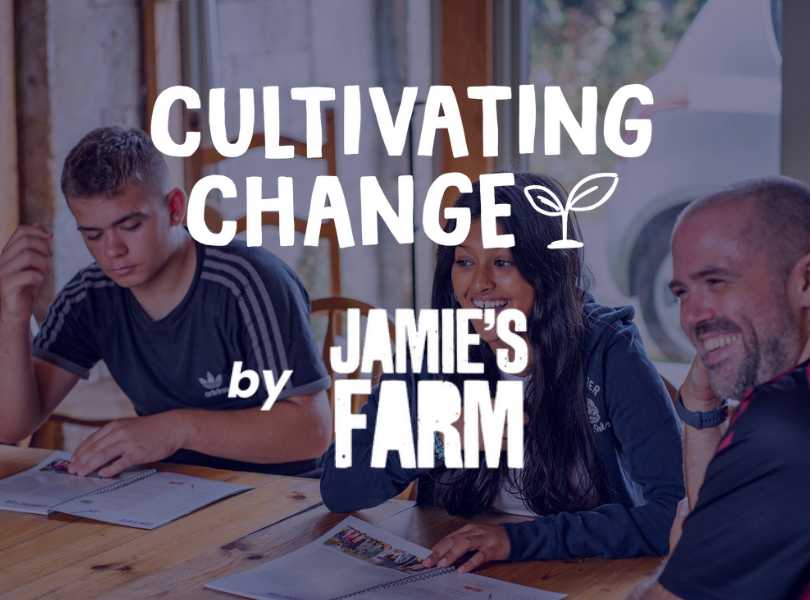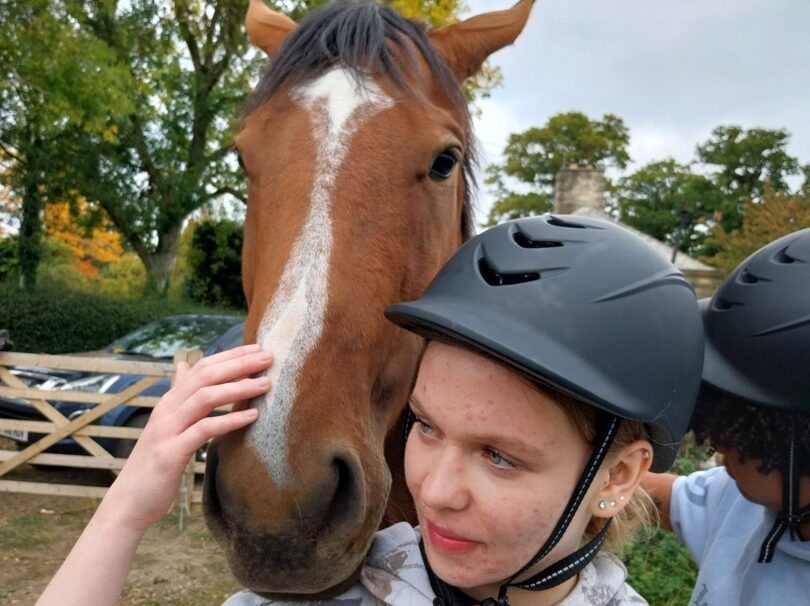Developing Relationships
With technology replacing human interaction in our increasingly digital world, research continues to show the importance of human connection and secure relationships, especially in healthy childhood development. Humans are social beings, wired for connection in order to thrive physically and mentally.
The final evaluation of Headstart, a national programme piloting mental health initiatives for young people, supports this, recently reporting that children’s mental wellbeing can be protected if they have reliable, trusting positive relationships with adults around them.
“The researcher Professor Ann Masten describes this as ‘ordinary magic’, which includes having good relationships with parents and carers, a sense of belonging at school and feeling like there are people in your life that you can trust.” Professor Jess Deighton, Anna Freud Centre
Certainly, the testimonials of over 13,000 children at Jamie’s Farm have demonstrated to us that the change they feel in themselves is largely due to the positive relationships with adults and peers and the sense of belonging that they build during their stay on the farm, which continues back at school and home.
The Power of Positivity
A body of research has shown that behaviour is improved through positive reinforcement. We all know that if we are greeted by a grumpy face, a stern voice or someone addressing our faults, most people either shut down, feel defensive or angry and push back. Warmth, positivity and a smile on the other hand are much more likely to attract a positive reaction. When we relax and feel liked and likable, we are more open minded and accepting. When we trust others, we are more open to learning, more curious and thoughtful.
Whilst children absolutely need boundaries and clarity, a recent report by the Children and Young People’s Mental Health Coalition (CYPMH) found that punitive approaches to behaviour management in schools are harming children and young people’s mental health. Avoiding meeting the needs of young people can push them into a negative mindset about themselves and the world around them.
Teachers and school staff shouldn’t need to be mental health professionals, but they can do a power of good simply by being that trusted adult and communicating in a friendly, positive way. Young people talk to us frequently about the need to feel listened to and heard by adults. Given the extended period of time children spend in schools, these communities have a key to creating safety and building cultures that promote a sense of belonging for all who work and learn in them go a long way to help children thrive.
“School staff are not mental health professionals, and nor should they be. But staff can be encouraged to understand how being a consistent, trusted person in a young person’s life is as important.” Professor Jess Deighton, Anna Freud Centre
Creating a Positive Culture
It’s clear then that trusting relationships between adult and young people are very important, but creating a positive culture means fostering positive peer to peer relationships too. The views and opinions of their peers are most important to young people, valued above those of adults (including their parents or teachers!). However, peer groups for young people can sometimes become toxic and negative communication becomes normalised. On the farm we see how this can change and how children feel so much better about themselves when they get multiple opportunities to encourage and support each other, to speak openly, share vulnerabilities and praise strengths in one another. Positive relationships flourish in a positive culture.
So often, peers struggle to openly give positive feedback to each other, yet this is such an incredibly powerful motivator for young people. Adults should work to harness young people’s brain power, focused as it is on identity and social relationships. Building a culture which values kindness, empathy, mutual support and openness can create the sense of safety that allows a young person to thrive.
Join us and our panel of experts at our next Cultivating Change webinar where we’ll be discussing the power of positivity and how we can foster positive relationships with and between young people, using communication and empathy.




